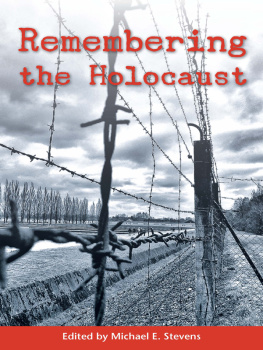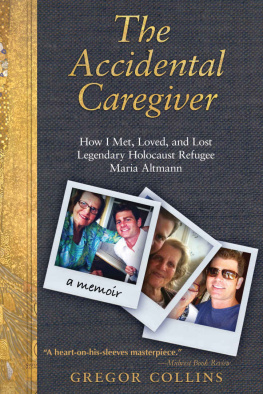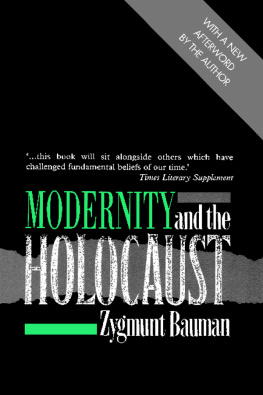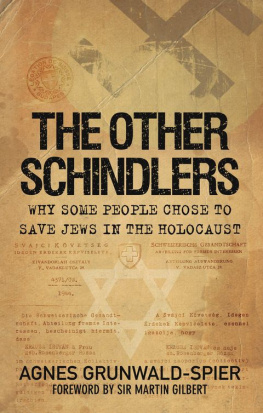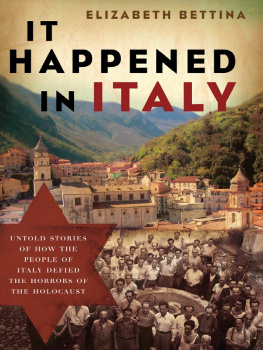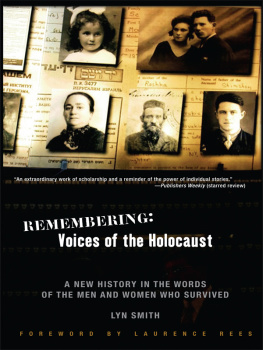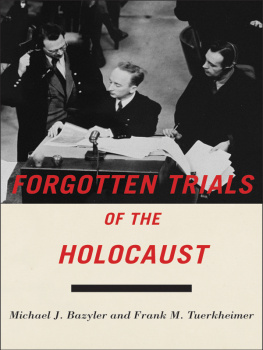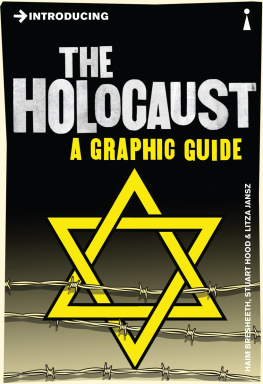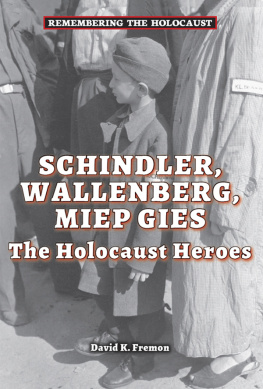Published in Australia by
New Homeland Publishers
ABN 27 405 493 873
Address: 35 Moorookyle Ave, Hughesdale, Vic. Australia
Tel: 0411566293
Email:
First published in Australia 2017
Copyright Altmann 2017
All rights reserved. No part of this publication may be reproduced, stored in a retrieval system, or transmitted, in any form or by any means without the prior written permission of the publisher, nor be otherwise circulated in any form of binding or cover other than that in which it is published and without a similar condition being imposed on the subsequent purchaser.
National Library of Australia CataloguinginPublication entry
Altmann Johanna
Last Stop: Australia
A memoir by Johanna Altmann
A new voice of the Holocaust
ISBN: 978-0-9954325-2-9 (paperback)
ISBN: 978-0-9954325-0-5 (hardback)
ISBN: 978-0-9954325-1-2 (eBook)
Cover photography by Bison United
Cover layout and design by B & J Designs
Typeset by Nelly Murariu, PixBee Design
Disclaimer
All care has been taken in the preparation of the information herein, but no responsibility can be accepted by the publisher or author for any damages resulting from the misinterpretation of this work. All contact details given in this book were current at the time of publication, but are subject to change.
The advice given in this book is based on the experience of the individuals. Professionals should be consulted for individual problems. The author and publisher shall not be responsible for any person with regard to any loss or damage caused directly or indirectly by the information in this book.
To my parents, who gave me the values and determination to survive;
To my beloved children, grandchildren and great-grandchildren;
I hope they can learn from my mistakes, understand my past and appreciate their wonderful life in Australia.
Contents
Vienna in the 1920s and the Polish Connection
To be born in spring in a city like Vienna is a special privilege. I arrived on 20 April 1923, the second daughter to my young parents Olga and Willy Altmann, a bit of a disappointment to my parents, who hoped for a boy. I was welcomed by my two-year-old sister Susi, who made it perfectly clear who was the boss and number one and kept in that way all the years to come.
I must admit, though, that she always cared and protected me and still is there when I need her.
My great-grandmother (Urgrossmutter Johanna), the revered and beloved head of the family, was on my side right from the start.
She took me in her arm, pressed me tenderly to her big bosom and decided that I should be named after her: Johanna.
Nobody, least of all my mother, would have opposed her wish. They loved each other dearly. Thanks to her, my mother, a poor girl without a dowry, had been accepted into the rich Jewish family. My grandmother Sophie followed her mothers example and received her beloved oldest sons wife with open arms. I was so lucky to be born into such a loving family.
As Johanna seemed to be a bit too long and formal for a newborn baby, I was called Hansi. Only my father called me Hannerle. Both parents were young and beautiful. Mutti couldnt walk the street without being stared at and admired for her unusual beauty.
Neither of us girls could ever reach her looks. She was surrounded by love and luxury, having two nurses: one for Susi, Sister Wilma, and one for me, Sister Turner. For the housework, she had a maid.
Both grandmothers thought it was a hell of a job breastfeeding a baby, so they insisted that Mutti be served hand and foot. Papa, who was a young officer in the Austro-Hungarian army, continued his interrupted law studies after he got married.
My beautiful mother, Susi and I.
He received a generous allowance to keep up this family standard. Great-Grandma Johanna had married into one of the richest families in Poland, Drohobycz.
The Lindenbaums owned most of the petroleum mines in Borysaw and huge estates of land and forests. After her father died, Grandma inherited a large part of this fortune, as did her brother and sister. Her marriage to Grandpa Benedict Altmann was arranged, as it used to be in those old days.
Grandpa Benedict was a doctor of the highest military rank (General Stabsarzt, or Surgeon General); he came from the same Polish city of Drohobycz. A perfect match for the unattractive, fat but rich and good-hearted Sophie. So he brought his doctor title, his good qualities and knowledge into his marriage, and Grandma brought in her big fortune. They were wonderful, easy-going and warm people. Their marriage became a perfect one, and they loved each other sincerely.
Grandpa also was happy that his son had married the girl he loved. Like everyone else, Grandpa had been won over by her charm, beauty and intelligence. Although Mutti came from Krakw, Poland to marry her first and everlasting love in Vienna and missed her family in her home country, she adjusted quickly to her new life.
She learned the German language quickly but always kept her Polish accent, which made her even more charming and attractive. The famous Austrian composer Franz Lehar, who met her in Bad Ischl with Susi on holiday (before I was born), became a big admirer. At that time, he was working on his operetta Das Land des Lchelns . He kept assuring her how much he admired her beauty and pleaded with her never to lose her charming accent. Although their friendship was innocent (so she kept reassuring us), she inspired him in composing his operetta, which he completed in 1929.
My dear sister Susi took over as soon as I arrived home from the hospital. Not even the two nursing sisters were able to prevent her from showing her jealousy! She spat into my nappies with disgust and stuffed a spoon in my mouth to stop me from crying. Fortunately my nurse saved me from suffocation just in time. My Great-Grandma had a better way to stop me from screaming.
At the family celebration of my birth (there is no baptism in the Jewish religion, only the circumcision for boys), I had the special urge to scream. As it became more and more unbearable, Great-Grandma found a solution: she poured a few drops of wine on my lips and put me to sleep for hours, to my mothers alarm.
We lived in Dbling, an elegant suburb of Vienna with beautiful villas and parks. Born in spring on a sunny day, Sister Turner took me all done up in my beautiful pram for long walks. With her two protruding front teeth, she resembled a monster. Whenever she approached or even looked at me I screamed!



